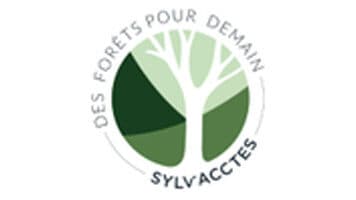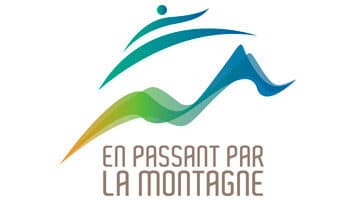
Striving for Net Positive
Here at Run the Alps, we envision a trail running community where everyone feels welcomed, and stories of joy, personal growth and shared adventure ripple beyond the peaks and valleys.
We recognize the inherent tension in the phrase “sustainable travel” – the very fact of traveling has an impact on the environment and the communities we visit. We are also convinced that seeing the world – especially the natural world – and running in inspiring places can have huge benefits too.
That’s why we’ve made a Net Positive commitment: to reduce our negative impacts wherever we can, and to leave our community – both locally and globally – better than we found it.
– Hillary Gerardi, Environment & Climate Projects Manager
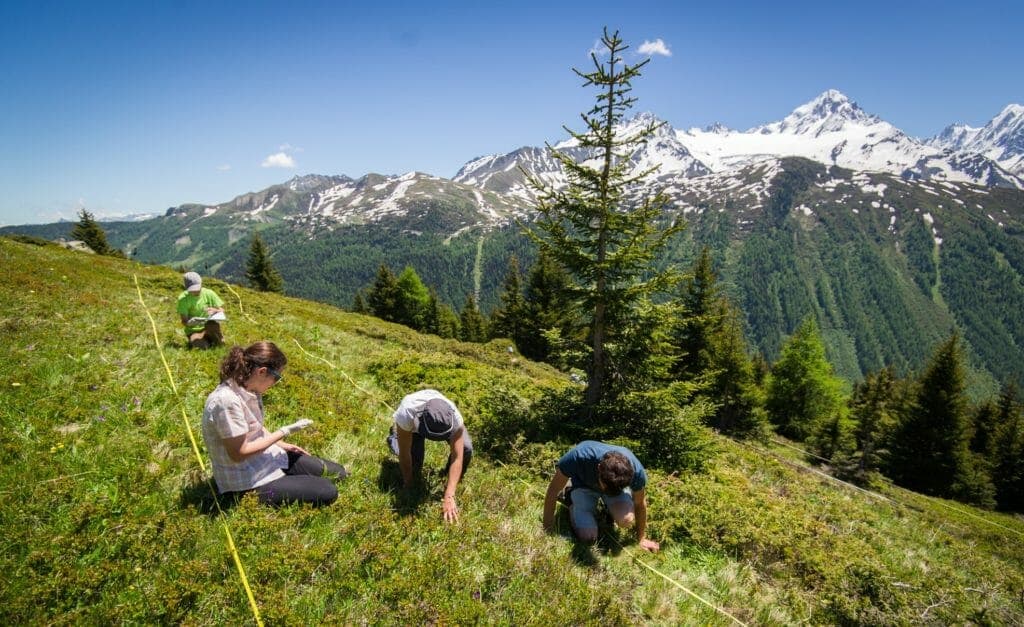
Our work for our environment:
1% for the Planet
From day one, Run the Alps has been a member of 1% for the Planet. Each year, we donate 1% of our gross income to organizations working to support people and the planet, especially in the Mont-Blanc region and surrounding areas. See here for a list of organizations we’ve supported.
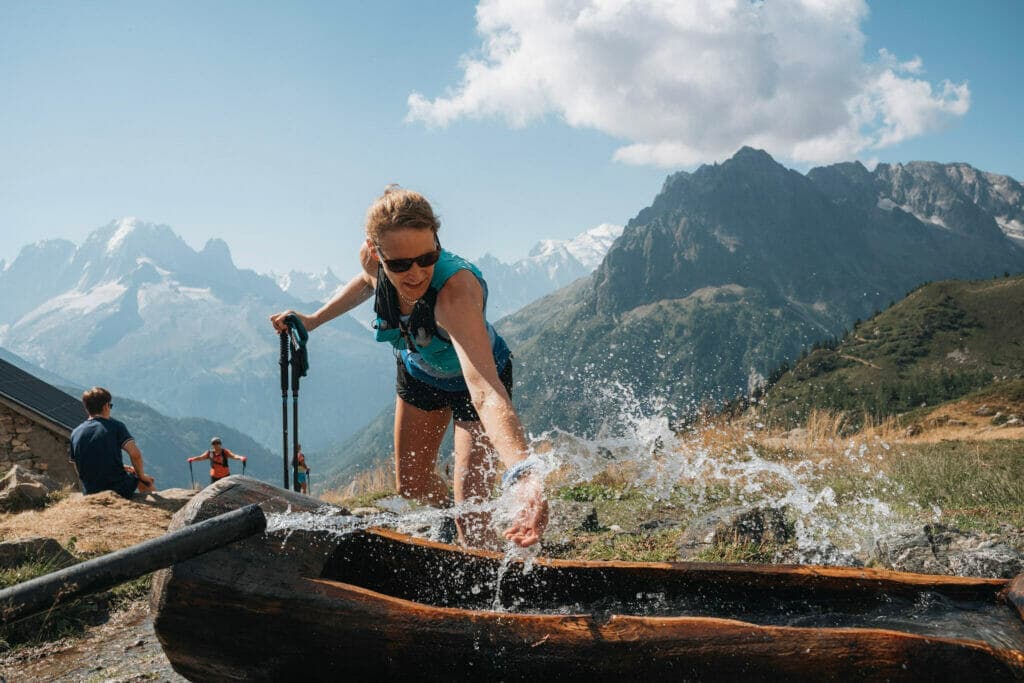
Leave No Trace: Alps-Specific Principles
In 2020, we developed an Alps-specific adaptation of the Leave No Trace principles. Today, all our guides are trained on these principles and apply them daily on our trips. We also help all our guests understand their role in bringing the principles to life – through pre-trip materials like our Guide to Trail Running in the Alps and in-person conversations.
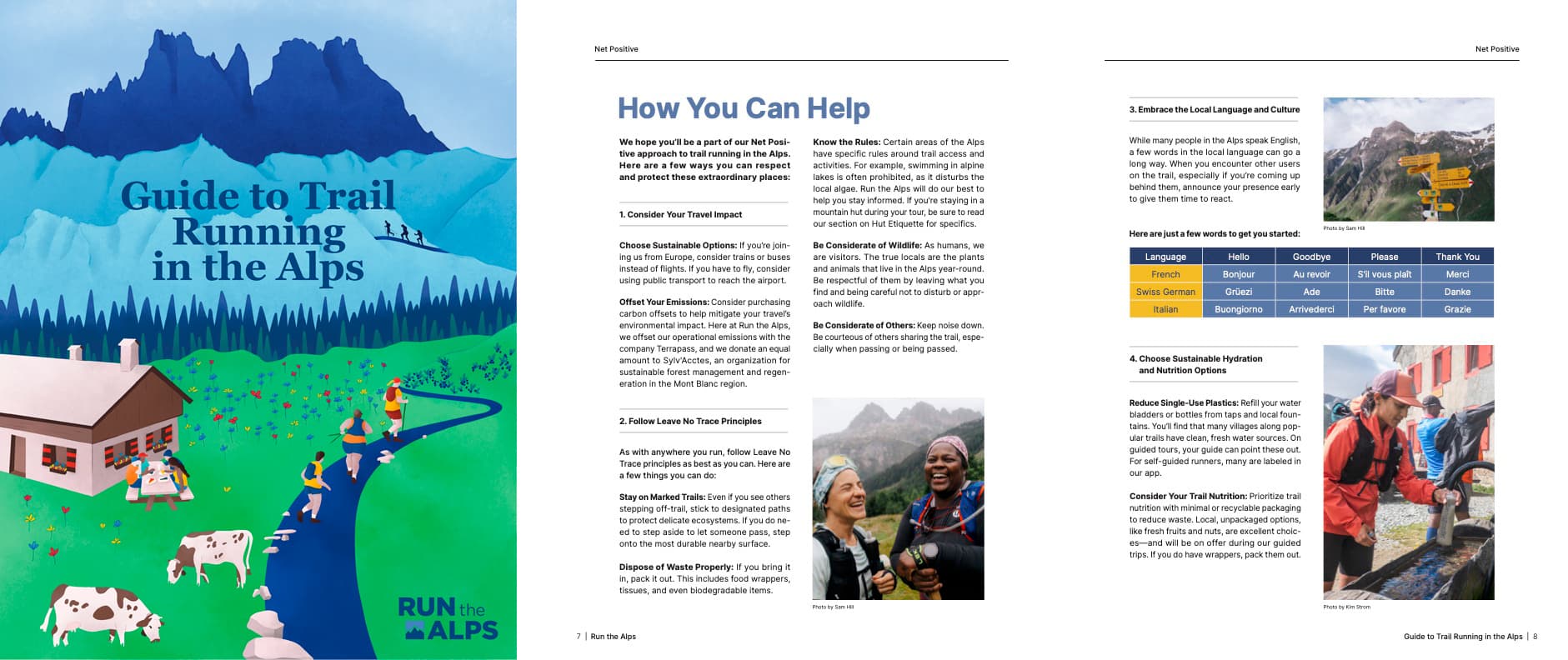
Education and Inspiration
We support our guides, guests and broader community in building a deeper understanding about our environment, including the impacts of climate change and how we can take meaningful action to address it. We publish articles on our blog, and have created an extensive interpretive guide to help educate our staff, guides and guests.
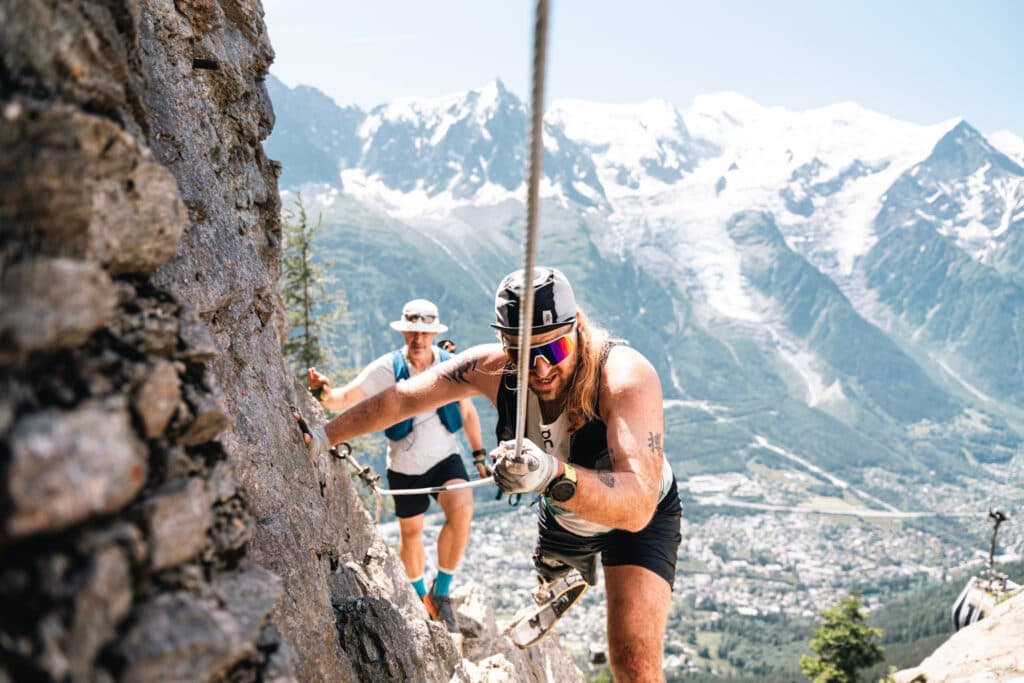
Our work for our community:
Tour Inclusivity
We strive to ensure every type of runner can find – and feel welcome on – a Run the Alps trip suited to their pace and experience. We’ve developed four trip rating tiers, offer multiple tours at every level, and are committed to helping every guest feel prepared for their vacation, whether that’s through our Alps Training Resources or more personalized support where needed.
We’re grateful for the support and guidance from inclusivity advocate Mirna Valerio, adaptive athlete and founder of Born to Adapt Zach Friedley, adaptive athlete and co-director of Born to Adapt Dani Aravich, and others.
Grant Program
Each year, our grant program gives runners from historically excluded or underrepresented communities the opportunity to join a Run the Alps trip at no tour cost. This includes, but is not limited to, people of color, LGBTQIA+ individuals, adaptive athletes, and those experiencing socioeconomic barriers.
Starting in 2026, grant recipients will also be eligible for a small, additional grant to help them drive further impact among their communities when they return from their trip.
Alpine Run Project
For several years now, our team has supported Alpine Run Project, a youth-led movement that empowers young people from inner cities by connecting them to the outdoors. From leading runs in the Alps to welcoming our first-ever trail leader interns, we’re thrilled to share our mountain skills and watch these young people grow in confidence. Check out this blog to learn more about our work with ARP.
Elevating the Voices of Others
We believe we have a responsibility to use our platform to elevate voices that help make trail running more accessible and welcoming. Our annual Film Festival is one example, celebrating the diversity of experiences in our trail running world. Films have showcased everything from how trail running helped Maleek Kuba-Kuba rebuild his life after incarceration, to the role it played for Sarah Gerrish after she experienced surgical menopause and a bewildering world of hormone replacement therapy, brain fog, and loneliness.
Inspiring Others
We’re always on the look out for opportunities to collaborate across the trail running community, sharing best practices and inspiration. This year we co-hosted the first edition of Building Bridges with UltraSignup and Mile & Stone. The event brought together a broad range of leaders for a day of conversations about where trail running is headed and how we can all positively influence its trajectory.
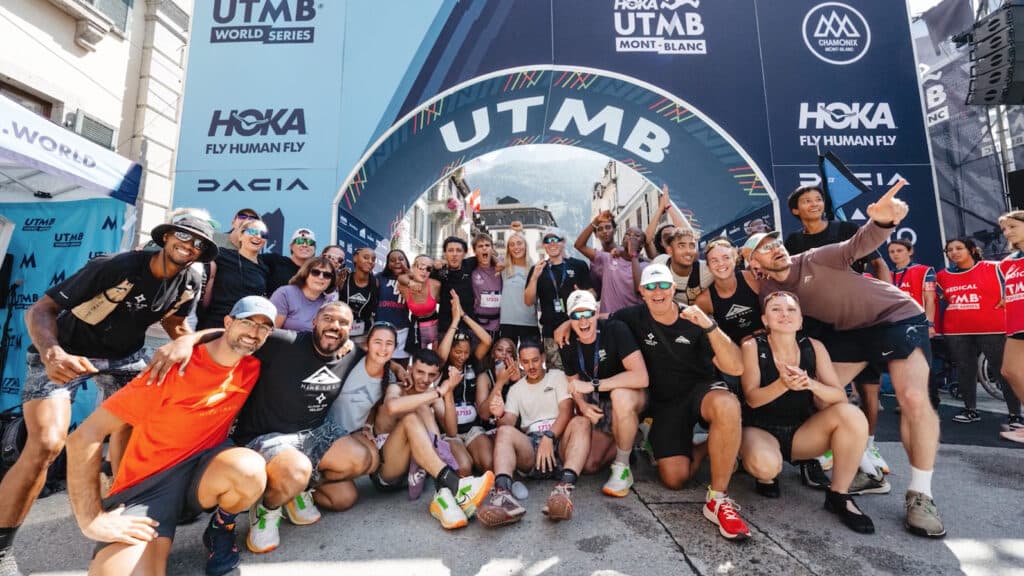
Got ideas for us?
We strive to do the best we can, and know we still have a lot to learn. If you have ideas or suggestions about how we can do better, we’d love to hear from you. Reach out anytime, and we’ll make sure your message gets the right set of eyes.
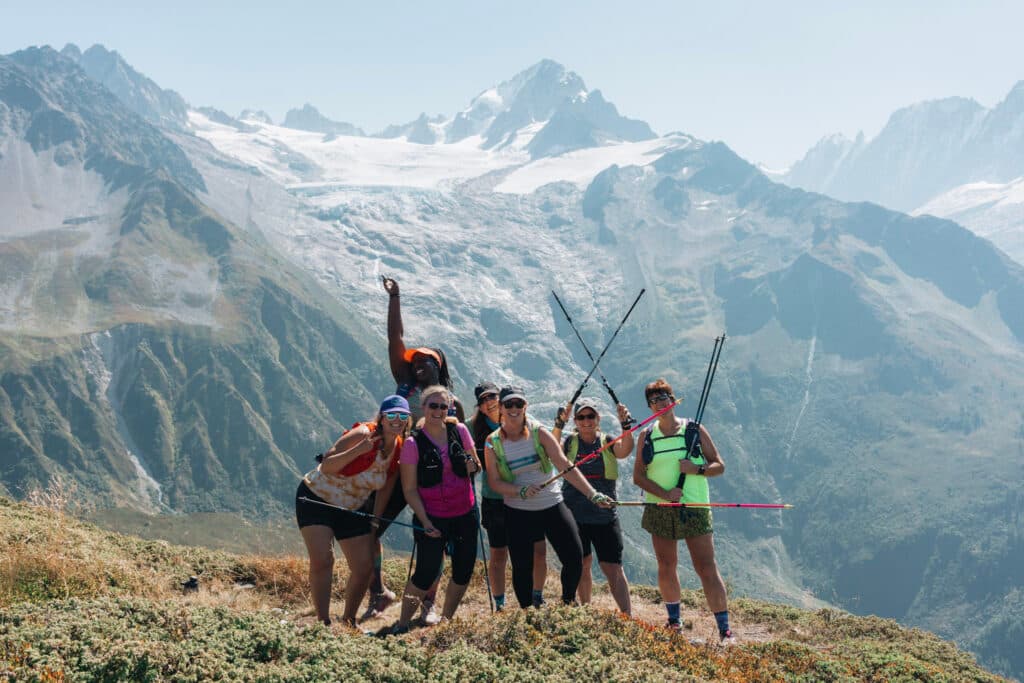
Partner organizations:
Since its inception Run the Alps has been a member of 1% for the Planet, a non-profit organization whose corporate members donate 1% of their gross proceeds each year to support environmental initiatives around the planet.
We run all of our trips according to the seven Leave No Trace principals, including limiting group sizes to reduce our environmental and social impacts. A typical guide-to-guest ratio on a Run the Alps trip is 6:1.
CREA Mont-Blanc is a local non-profit research center focussed on researching and addressing the impact climate change is having in the Alps.
Asters mission is to preserve and showcase the natural heritage of France’s Haute-Savoie region. This area includes Chamonix and much of the Tour du Mont-Blanc.
Sylv’acctes works to restore and preserve old forests in France. We are currently supporting a local project to rehabilitate the monoculture spruce forests, which have suffered because of recent high temperatures and the invasion of the European Bark beetle, replacing them with diversified forests where needed.
Inspire is working to improve air quality in the Chamonix valley.
Protect Our Winters France is committed to working with local race organizations to help them minimize their impact. POW worked directly with the Mont Blanc Marathon to ensure at least 40% of participants come via train in 2025.
En Passant Par La Montagne is a local non-profit working to make a mountain environment that includes, integrates and educates. It is committed to ensuring the mountains are accessible to those who are vulnerable, excluded, and in need.
The Alpine Run Project, is a UK-based organization that uses the transformative power of trail running to support and inspire young people living in inner cities.
The Clean Air Task Force works to reduce air pollution, combat climate change and promote clean energy solutions through scientific advocacy, policy reform, and technological innovation.
Learn more and get inspired:
How Climate Change is Affecting the Alps
What is Run the Alps’ Carbon Footprint?
Let it Ripple: Run the Alps x Alpine Run Project
The EU’s New Entry/Exit System (EES): What Travelers Need to Know
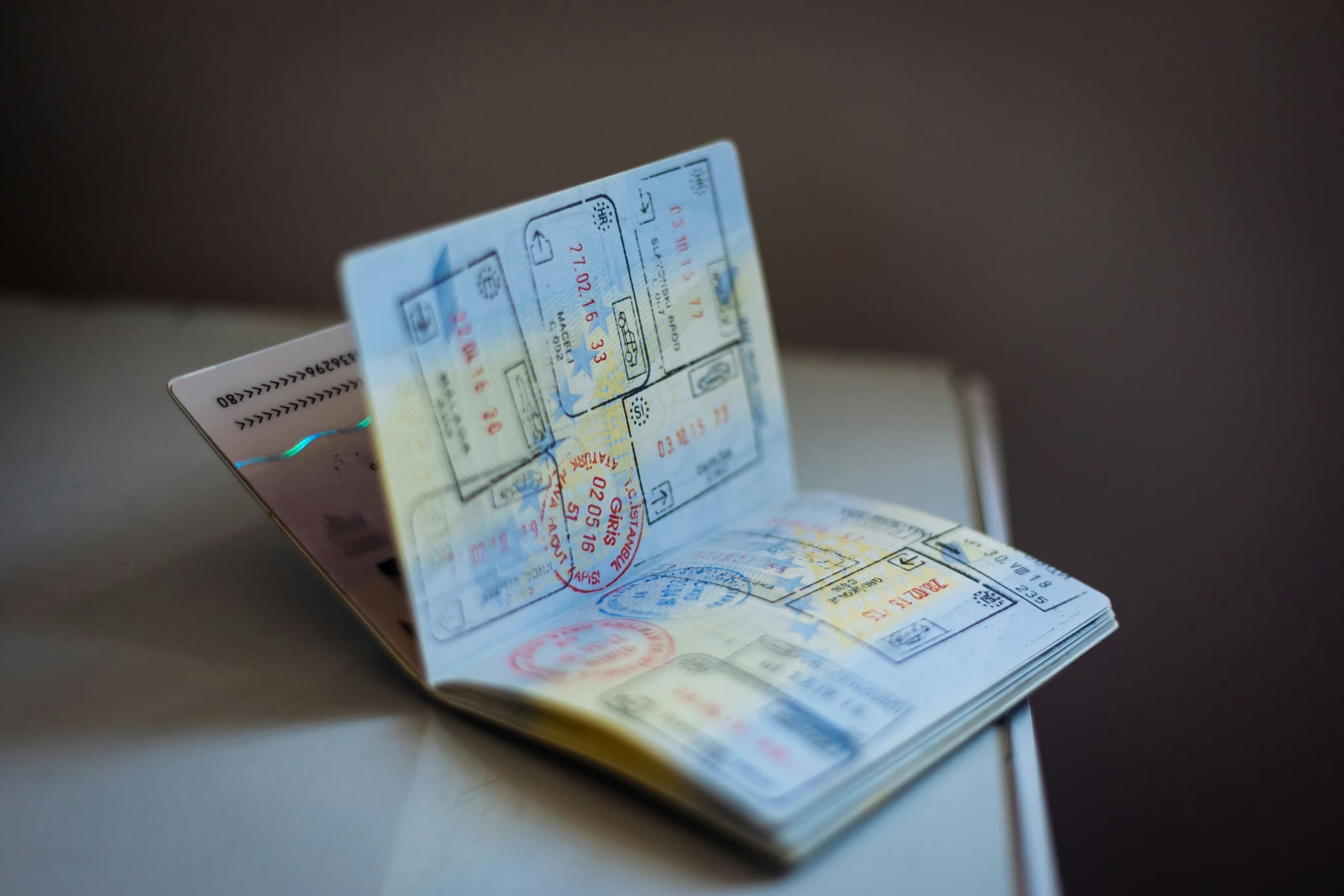
The Entry/Exit System will replace passport stamping for visitors arriving from outside the EU. Here’s how it affects your trip.
Run the Alps Film Festival 2026
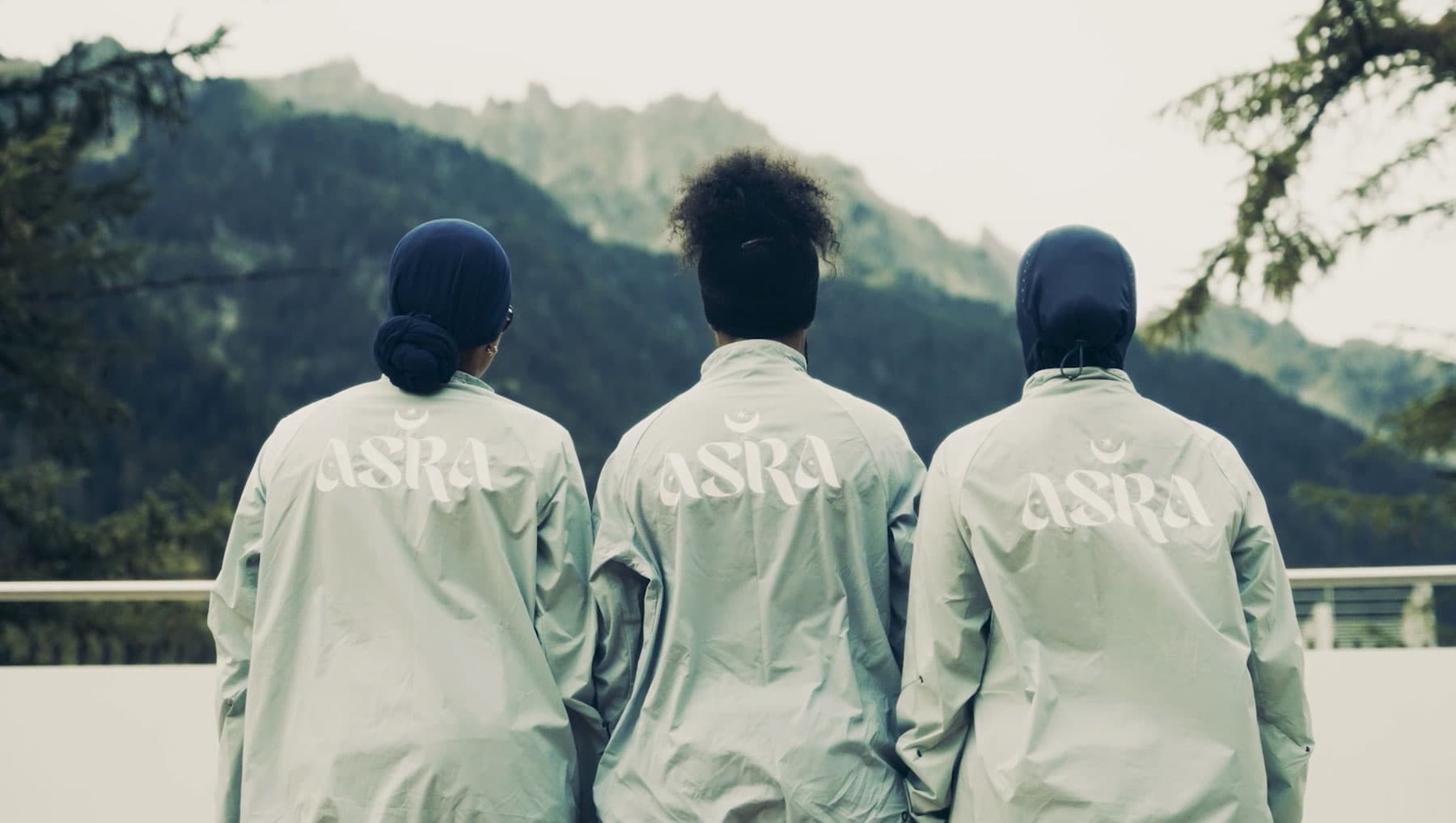
Our film festival is a celebration of trail running in the Alps, showcasing inspiring stories and breathtaking landscapes.
Guest Runners
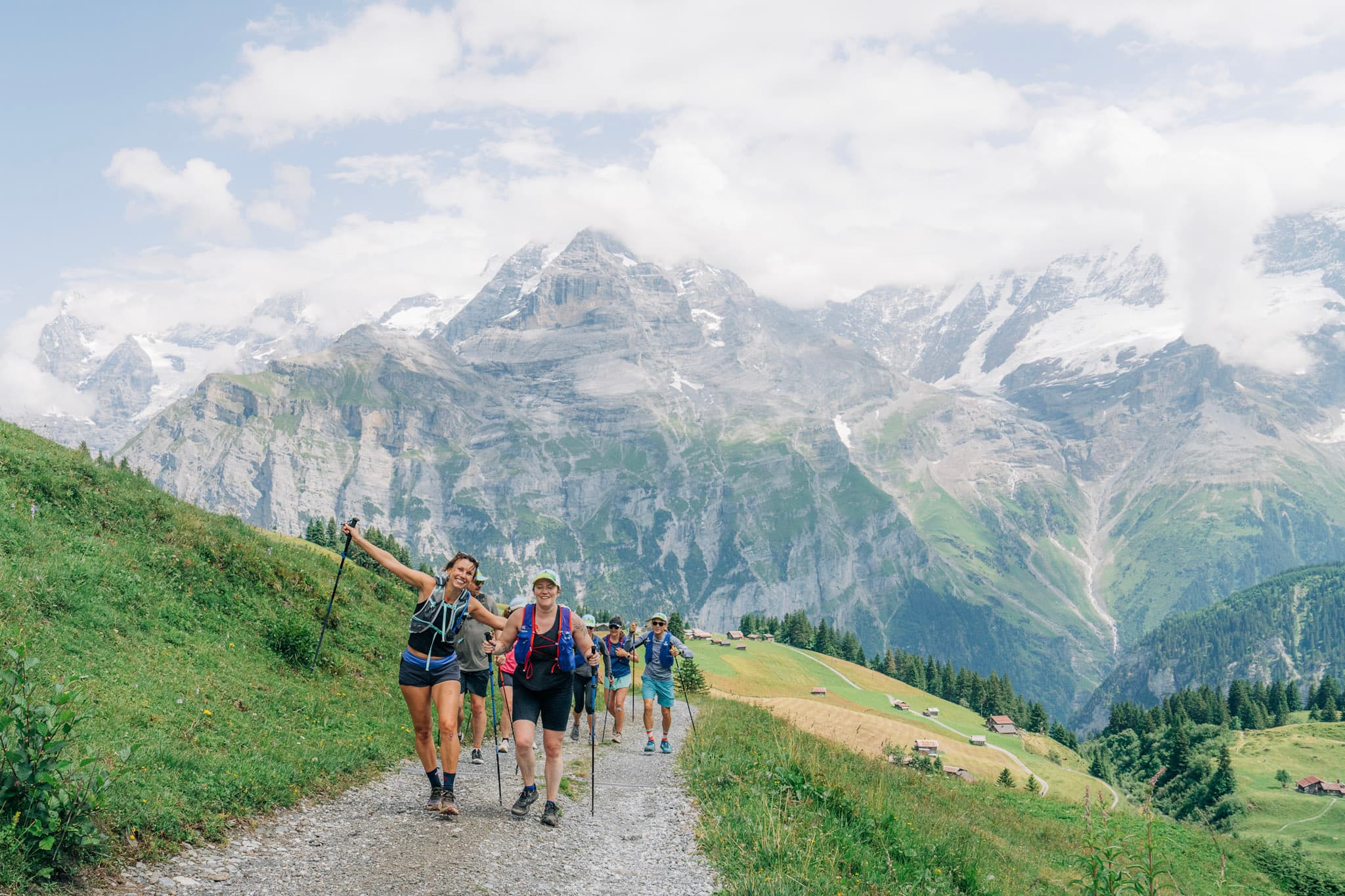
Run the Alps is fortunate to be tapped into a world of adventurous trail runners with a wide range of experiences, knowledge and insights who share our inclusive, supportive philosophy. Let’s run together.




